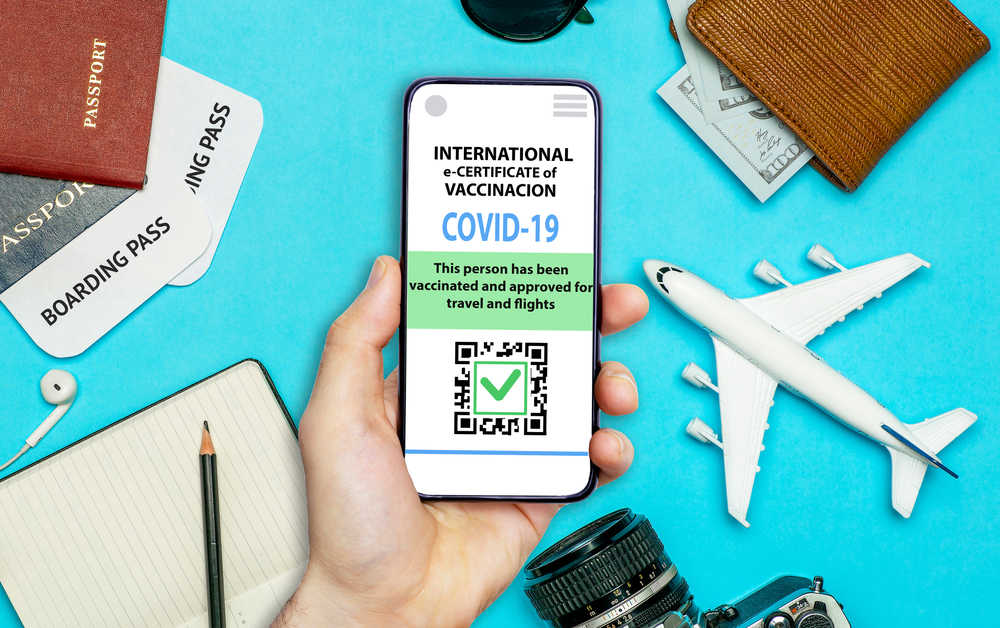Italy and France first countries in EU to embrace virus passes

Last week, a new COVID-19 certification rule went into effect in Italy as part of the government’s plan to rein in a summer surge in infections. Pompeii’s archaeological park is offering free swab tests, the Vatican Museums posted refund instructions, and tourists swiped out smartphones to show QR codes along with admission tickets.
To enter archaeological sites, gyms, theatres, indoor pools, and the indoor sections of restaurants, bars, and cafés, a so-called “Green Pass” is now required. Individuals must show they have received at least one dose of a coronavirus vaccine approved for use in the European Union, recovered from COVID-19 in the previous six months, or have negative swab results from a test performed within the previous 48 hours to receive a certificate.
Starting Sept. 1, those taking flights, high-speed or inter-regional trains, or ships sailing between regions will be required to obtain mandatory certification.
On July 22, the government announced the rule, and by late July, nearly half of Italy’s 60 million residents had downloaded the certification.
For tourists arriving from the United States, Canada, Japan, and Israel, vaccination certificates issued by those countries are accepted.
Visitors to the Vatican Museums, one of the world’s most popular attractions, lined up along the sidewalk flanking Vatican City’s walls, ready to show their mobile phones with QR certificates to staffers at the entrance. The line was moving quickly.
Visitors from France found the new Italian system familiar. Their country has already introduced entrance requirements even tougher than Italy’s since they also apply to outdoor dining.
“It is good for everybody’s safety. It is positive for the economy, too, ″ French tourist Alexine Prentignac said.
While many people prefer to show their Green Pass on their phones, paper certification is accepted in Italy. The Vatican Museums website advised visitors to bring an identity document with them for staff to “verify actual ownership” of the Green Pass. The website provided instructions on how to request a ticket refund for anyone who was unwilling or unable to comply.
At Pompeii, one of Italy’s most popular tourist destinations, officials collaborated with the city of Naples to provide coronavirus tests during the park’s opening hours, which feature the ruins of the ancient Roman city. For the time being, the tests are being administered on an experimental basis and are free of charge.
Business owners quickly wove the change into their customer routines. Fabrizio De Falco, the owner of a café near St. Peter’s Basilica with both an outdoor terrace and indoor tables, also regarded it as a necessary adjustment during the pandemic.
“It is one more duty. It is an additional workload, but it is worth it if it will get us out of this situation, ″ said De Falco.
The Green Pass rule applies to those 12 or older since children under that age aren’t eligible to receive a COVID-19 vaccine in Italy.
France, meanwhile, followed suit, requiring people – including tourists – to show a QR code proving they have a special virus pass before they can enjoy restaurants and cafés or travel throughout the country.
The pass is now required on high-speed, intercity, and night trains in France, which carry over 400,000 passengers per day, according to Transport Ministry chief Jean-Baptiste Djebbari. It is also required for long-distance flights or bus rides. Paper and digital documents are both acceptable.
People who have been vaccinated against COVID-19, have proof of a recent recovery from the virus or have a recent negative test are eligible for the special pass. The measure is part of a government plan to encourage more people to get vaccinated against COVID-19 and slow the spread of infections, as the highly contagious delta variant is now responsible for the majority of cases in France. In France, over 36 million people, or more than 54 percent of the population, are fully vaccinated.
The virus pass has already been in place for last month for cultural and recreational venues including cinemas, concert halls, sports arenas, and theme parks.
France has waffled a bit with protocols for tourists entering the country from outside the EU to receive a ‘Pass Sanitaire’ digital health pass.
Instructions have been given for tourists to visit a pharmacy after arrival, where a French pharmacist can enter proof of vaccination from abroad into the French system, but the latest advice should be a lot easier.
French authorities now instruct visitors already in France, or with plans to visit France, to email their relevant embassy, after taking a photo of their vaccination card, a copy of their passport and have filled out a form.
All three should be attached to the email, and then French authorities will send a QR code, which will act as the ‘Sanitaire’ health pass around France.
It’s unclear whether France plans to automate the process further for arrivals later in the year, but for near term trips, this is absolutely the best way to get the key Sanitaire Pass, which unlocks most of the doors in France which any visitors may want to enter.


Comments are closed.